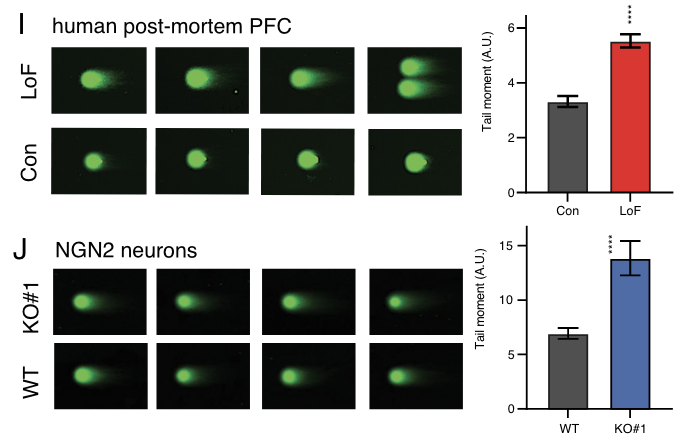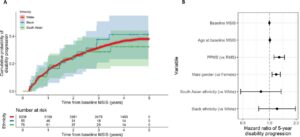
Djuna von Maydell, et al. – MIT.
Background: Mutations in ATP-binding cassette transporter A7 (ABCA7) are among the most influential genetic risk factors for AD, yet how this gene contributes to AD pathology is largely unknown.
This study: von Maydell and colleagues examined the effects of losing ABCA7 function (LoF) in post-mortem patient tissue and cultured human neurons. The authors identified alterations in lipid synthesis, mitochondrial function, and DNA damage. Intriguingly, directly disrupting lipid synthesis pathways in cultured human neurons by editing ABCA7 LoF into a WT line also caused mitochondrial dysfunction and DNA damage, suggesting these effects in ABCA7 LoF are downstream of lipid dysfunction.
Bottom Line: ABCA7 contributes to AD pathology by impacting multiple aspects of cellular health beyond lipid regulation. This adds to the growing body of literature identifying lipids as key factors in AD neuropathology.




